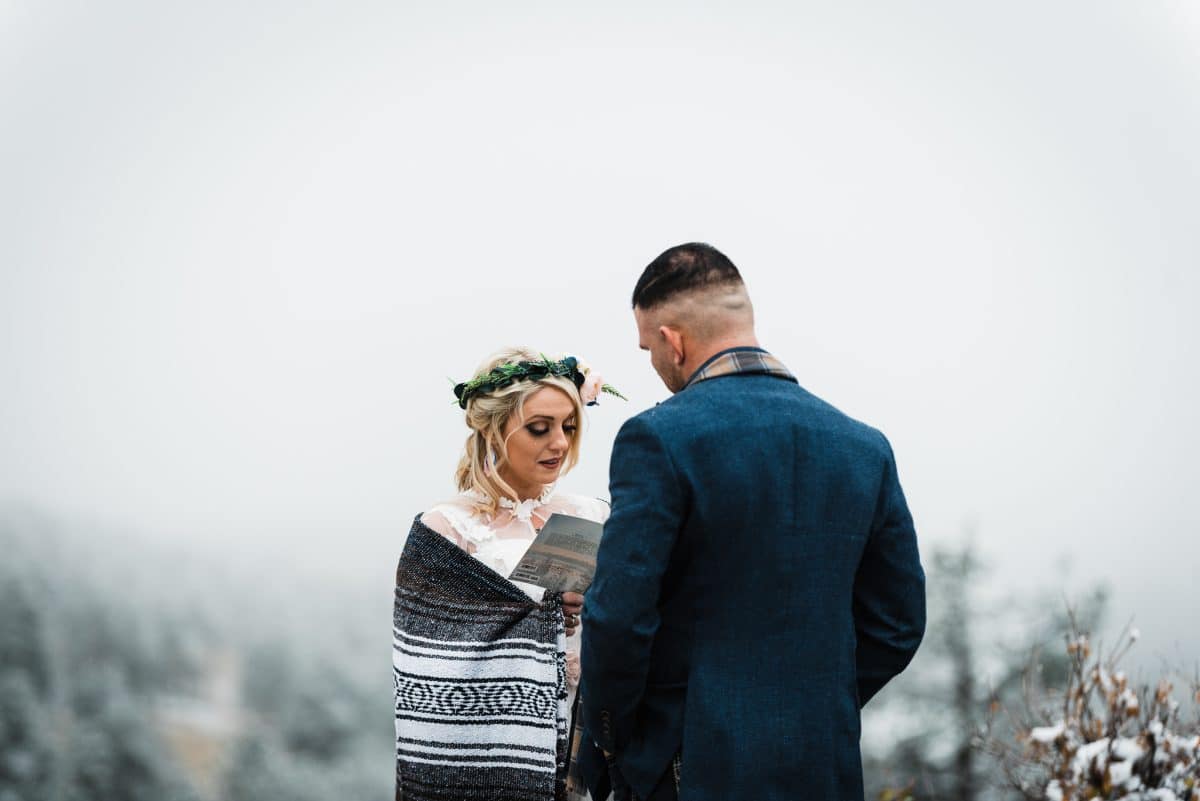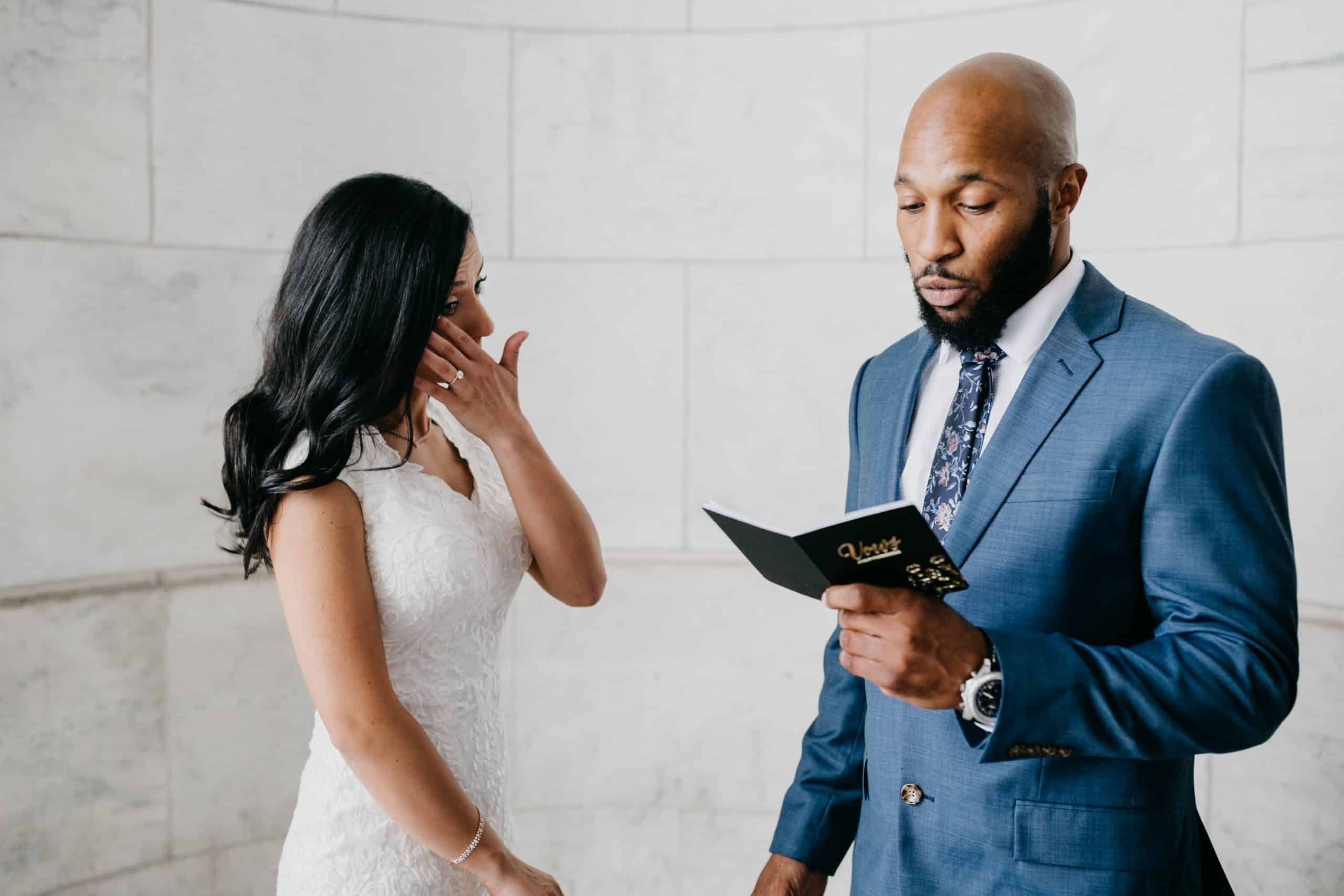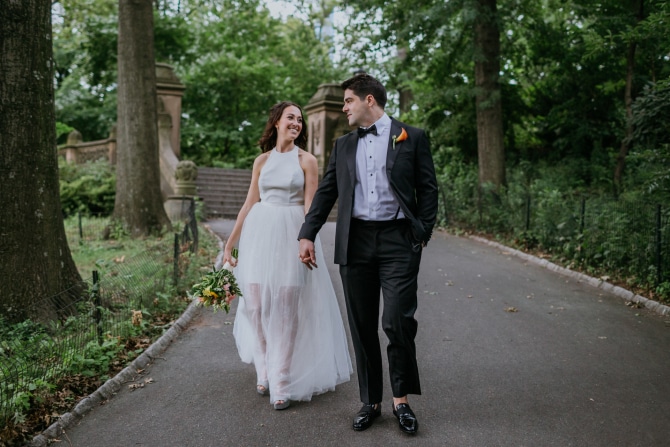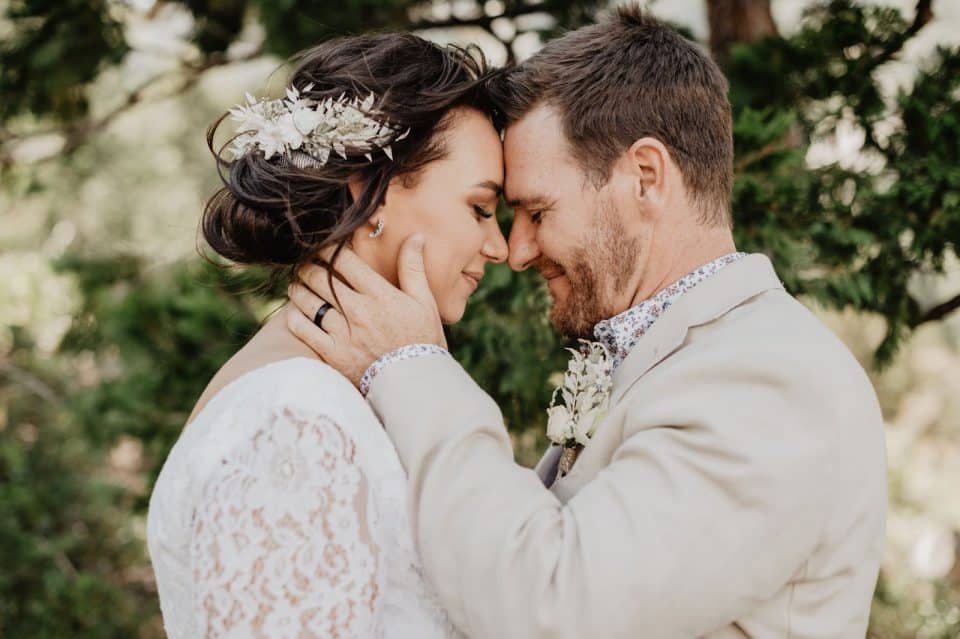Things To Consider When Writing Your Own Wedding Vows
Express your love in the way that feels the best to you

Updated March 26, 2024
Plenty of couples we work with have been on the fence about writing their vows at some point during their wedding planning process. And, look: if it’s not for you, it’s not for you. Please don’t force it! There is so much beauty in going with the traditional vows that have been passed down from generation to generation. But there is also something to be said for writing your own vows, too. When you write your wedding vows from the heart, you turn the act into something more intimate. Exchanging more personally written vows can elevate a simple ceremony to a very touching and personal moment. Unsure of how to write wedding vows? No problem. Here are some wedding vow tips for getting through the hard part — actually writing them!

Make a list
Feeling anxious about writing your wedding vows? Instead of panicking, embrace this effective strategy: over the course of several days, compile a list highlighting all the reasons you cherish your partner and all the hopes you have for your future marriage together in a wedding vow booklet. Think of this as your love story archive — a place to pour out your heart unfiltered! This collection will serve as a springboard for your vows; there’s no need to perfect it as you go. The specific wording and format will come later, we promise. The precise language and structure will naturally evolve. Putting together everything you adore about your partner is the essential first step in the journey of writing wedding vows, whether for your initial vows or a vow renewal.
Agree on a format
When it comes to the structure of your personalized wedding vows, it’s beneficial to work on them independently. However, it’s equally as important to discuss the tone and length with your partner before your wedding ceremony. Half the anxiety of vow writing is not knowing how to say what you want, and when to stop. Casually talking about format and setting flexible guidelines can help trim your anxiety and ensure that both sets of vows harmonize beautifully during the ceremony.
We recommend using the ‘past, present and future’ approach
Your approach to crafting personal wedding vows can deeply enhance the emotional resonance of your ceremony. We suggest embracing the ‘past, present, and future’ methodology:
- Past: “When we first met I had no idea that you were going to change my life forever.”
- “We have grown so much together and I am so grateful for the person you’ve helped me become.”
- “I promise to always be there for you, to give you space to grow and to treat you with kindness and respect.
While you should write your marriage vows in private, take time to sit down with your future spouse and chat about the tone of your vows and the approximate length. When you write wedding vows, knowing what to expect from each other will make it easier. Half the anxiety of vow writing is one person thinking they’re going to pour their heart out into a 10-minute speech while their partner makes a short and sweet joke about their future together. A good rule of thumb? Aim for less than two minutes of speaking time.
Write Own Vows by Hand
Crafting the perfect wedding vows is a heartfelt gesture that adds a deeply personal touch to your ceremony, blending beautifully with wedding traditions. A good idea to make your vows truly stand out is to write them by hand. Not only does a handwritten vow become a cherished keepsake, but the act of writing by hand also helps embed your carefully chosen words into your memory more effectively. This method not only serves an aesthetic purpose, enhancing the visual appeal of your vows for those unforgettable wedding photos, but also helps alleviate the anxiety of forgetting any part of your vows on the big day. The tradition of writing vows by hand not only honors the timeless essence of marital promises but also ensures your words are both personal and unforgettable, contributing to the perfection of your wedding ceremony.
Tips For Writing Your Wedding Vows
Utilizing a wedding vow template can offer a structured foundation, allowing your emotions and commitment to weave through eloquently. Consider doing the following to add more content to your vow:
- Jot down notes about your relationship – Begin by writing your wedding vows by focusing on your relationship as a couple. Your partner will surely appreciate this, as this shows how much you value what you have. Start by drafting some words then some sentences will form, but don’t be too worried about the wedding vow structure. Look at this like mapping out your loving thoughts!
- Come up with one or two, or many, promises – Wedding vows are actually a way to profess your never-ending love and the things that you’ll do to keep that love burning. It’s a way to reassure your partner that your wedding day is just the start of a great life together. Think about the future and personalize your promises.
- Include a story that demonstrates your love – Adding a story about you as a couple when writing your wedding vows will give your guests an insight into your relationship. Not only that, but your partner will appreciate you for remembering that particular memory.
- Include a reference to the future – Write wedding vows in a way where you share your hopes, dreams, and aspirations as a married couple.
Remember, this vow example can inspire and guide you, but the most impactful vows are deeply personal, reflecting your unique love story and shared experiences. By combining these elements, you’ll create a vow that not only adheres to the best practices of wedding traditions but also stands as a testament to your love and commitment.
Get a second opinion
If you’re still nervous about your vows, you can always ask a third party to review them. Ask a trusted friend or family member to read what you’ve written down. Even better? Rehearse by reading your vow to them. Remember that they’re not here to criticize what you’ve written — it’s more about the structure and flow of your sentences. Polishing your wedding vow structure will improve the way you’ll deliver it. Reading your vows gives you a taste of how they sound when spoken aloud (and can help shake some first-time jitters). Plus, the more you read them, the more you’ll reduce your nerves of stumbling over your words. Practice makes perfect!

Remember, it’s not a contest
Writing your own wedding vows should be an enjoyable experience. Remember, it should never feel like a competition to see whose vows were the “best”. The essence of your vows is not subject to evaluation by your partner, the wedding guests, or the wedding officiant. It’s your wedding day; you both win! Don’t sacrifice what you want to say because it may seem too cheesy, too cliché, or doesn’t sound intellectual enough. Express your love in the way that feels the best to you, and that is what will matter most. Your future (married) self is guaranteed to thank you.




